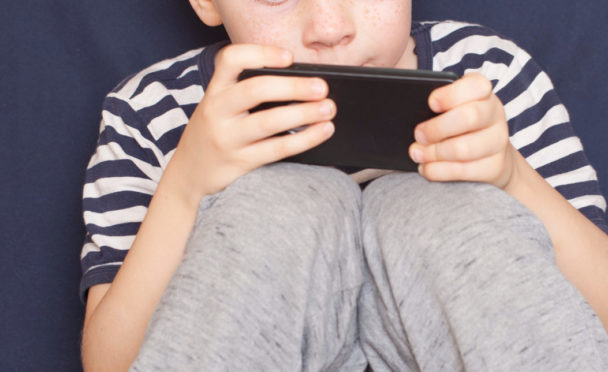
A new project to teach young people about social media has been launched.
Mind Yer Time was commissioned before the coronavirus outbreak took hold by the Scottish Youth Parliament and Children’s Parliament.
With the help of 650 children and young people, the project outlines how to avoid unhealthy amounts of screen time and tackles online bullying and body image issues – linking to NHS and Scottish Government-approved advice.
With the launch coinciding with enforced lockdown measures to tackle Covid-19, it is hoped it will prove useful as young people spend more time indoors.
Mental health minister Clare Haughey said: “I can’t think of a better time than now, when we are all adjusting to a new way of life and spending more time online, for this advice to publish.
“As we know, social media does have the potential to be used in a hugely positive way but we want to ensure young people are properly informed on how social media promotes unrealistic expectations and what the healthy use of social media platforms looks like.
“We are also considering what further support is necessary for children and young people who may be experiencing stress, worry and anxiety around the pandemic.
“The Scottish Youth Parliament and the Children’s Parliament should be very proud of this world-leading work and we hope it is widely used across Scotland, both during the pandemic and beyond.”
Jack Dudgeon, the chairman of the Scottish Youth Parliament, said: “Like all of us, young people in Scotland are adapting to physical distancing by spending more time online.
“Online tech is playing a vital role in reducing isolation during the coronavirus outbreak but at times it can be overwhelming, and research shows unhealthy amounts of screen time have a negative impact on our mental and physical health.
“We’re proud to be helping young people by launching the Mind Yer Time resource, so they can flourish online and offline.”
The project was created with the help of pupils from Banchory Primary School in Alloa, Clackmannanshire, Thorntree Primary School in Glasgow and Kingussie Primary School in the Highlands.
Cathy McCulloch, the co-director of the Children’s Parliament, said: “The Children’s Parliament is aware of the risks associated with screen and social media use, however, we are clear that the digital environment also offers extraordinary opportunities for promoting and protecting children’s health and well-being, particularly at a time like this.”

Enjoy the convenience of having The Sunday Post delivered as a digital ePaper straight to your smartphone, tablet or computer.
Subscribe for only £5.49 a month and enjoy all the benefits of the printed paper as a digital replica.
Subscribe